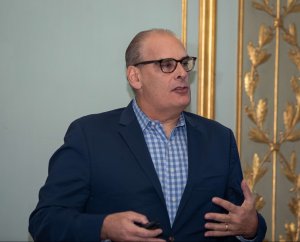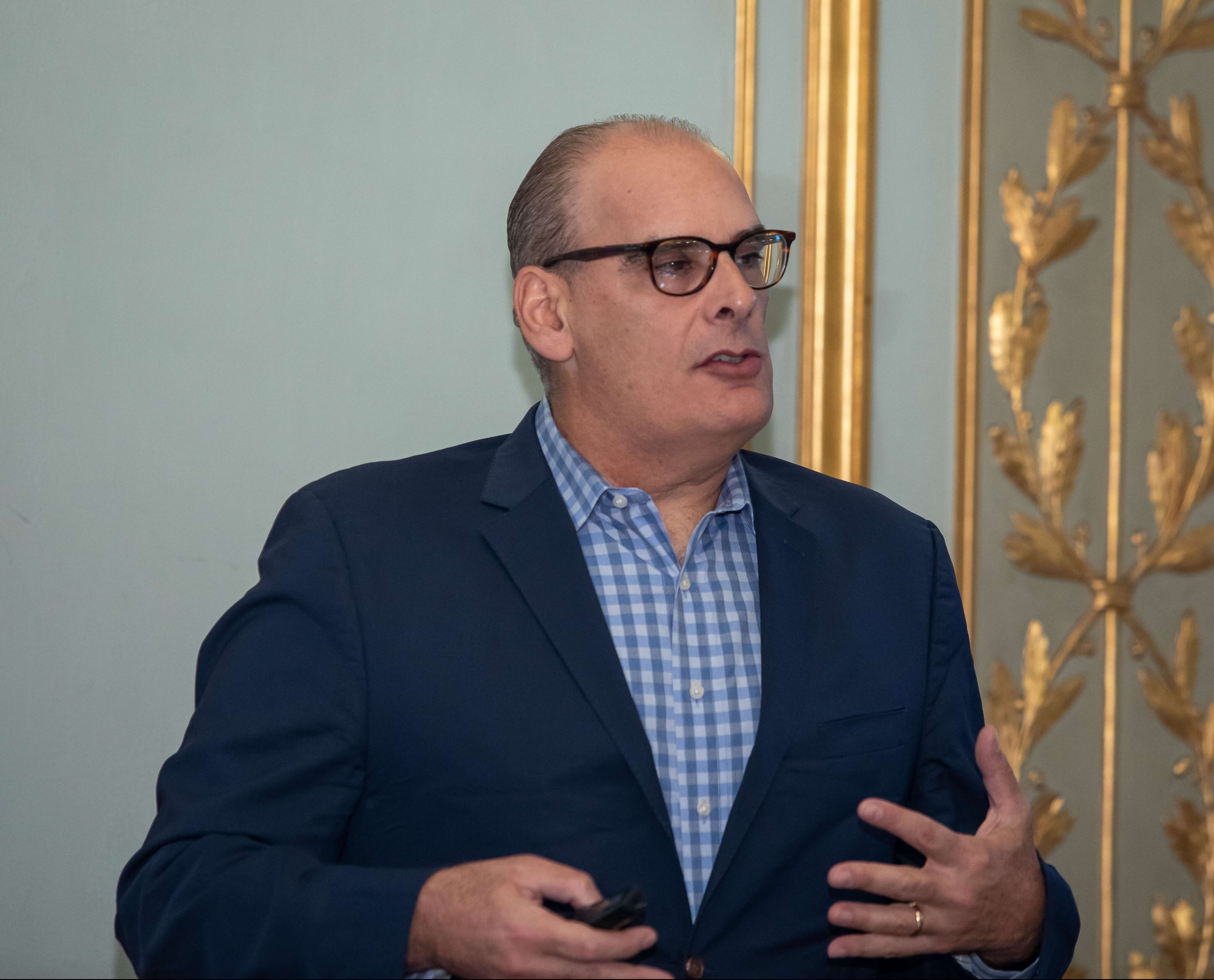 Randall S. Abate, professor in the Department of Political Science and Sociology and Rechnitz Family/Urban Coast Institute Endowed Chair in Marine and Environmental Law and Policy, delivered the first of this year’s endowed chairs lecture series entitled, “Climate Change and the Voiceless: Protecting Future Generations, Wildlife, and Natural Resources.”
Randall S. Abate, professor in the Department of Political Science and Sociology and Rechnitz Family/Urban Coast Institute Endowed Chair in Marine and Environmental Law and Policy, delivered the first of this year’s endowed chairs lecture series entitled, “Climate Change and the Voiceless: Protecting Future Generations, Wildlife, and Natural Resources.”
The lecture, sponsored by the Monmouth University Council of Endowed Chairs, gets its name directly from Abate’s new book set to be published next month by Cambridge University Press, and explores how the law, through the context of climate change, can evolve to protect the interests of three seemingly unrelated groups, which Abate refers to collectively as “the voiceless.”
“This characterization of ‘the voiceless’ … whether we’re talking about future generations in the form of children or the unborn, or we’re talking about animals, or we’re talking about natural resources, they share one common vulnerability, which is they do not have a voice in the legal system the way living, adult humans do,” Abate said.
Abate said the voiceless are the most vulnerable and least equipped populations to protect themselves from the impacts of global climate change, which is the number one threat to all life on the planet. He argues that a stewardship-focused, rights-based revolution—through the lens of climate change and climate justice—is needed in order to change domestic and international law protections for these groups.
Arguing that a paradigm shift needs to occur so that legal principles begin to reflect an “ecocentric” model, Abate said we as humans need to view ourselves as one part of a larger ecosystem, placing more responsibility on ourselves to protect groups such as the marginalized and the voiceless. An important aspect of this shift would be to include the element of sustainable development, the idea of keeping the generations of tomorrow in mind when making the decisions of today.
“The ecocentric model would require a stepping away from that capitalistic, human-centered focus in a way that recognizes our place in a larger ecosystem among non-humans and the unborn,” Abate said. “We need to have a higher burden on the government to act as a steward of resources, and animals, and future generations.”
Along with adopting an ecocentric mantra, and identifying the rights of future generations so that sustainable development can be incorporated at the government level, Abate argues that a rights-based, climate justice approach to law needs to be adopted as a checks and balances mechanism for these groups.
“We need a legal system where those that are not adequately protected, these voiceless communities, are empowered with rights that they can enforce in courts when they are not adequately protected through these government stewardship obligations,” Abate said.
In both his lecture and in his book, which is available for pre-order, Abate retraces the history of environmental law in the United States, pinpointing gaps left by those early initiatives, which led to the environmental justice, and now the climate justice, movements.
He also highlights a slew of both climate justice and non-climate justice-related litigation and initiatives happening around the world to protect the voiceless, which together form the basis for rights-based change and protections at both the national and international law levels to address the myriad social, economic, political and legal challenges linked to climate change.
“We have to have an ecocentric view of protecting our world moving forward in the face of climate change. We aren’t going to be able to do that just by worrying about our own needs,” Abate said. “That’s how all this fits together in terms of a proposal to protect the voiceless, in a way that is ecocentric … [that] ultimately builds on the momentum of some of these developments outside of climate change to use as leverage for enhancing our efforts to regulate climate change moving forward.”
Abate delivered a similar lecture to Rutgers University professors and students as an invited speaker for the “Governance in the Anthropocene Speaker Series” held on Sept. 18, 2019. The speaker series is co-hosted by the Rutgers Climate Institute and the Rutgers Department of Human Ecology. A video recording of the lecture is available online.

